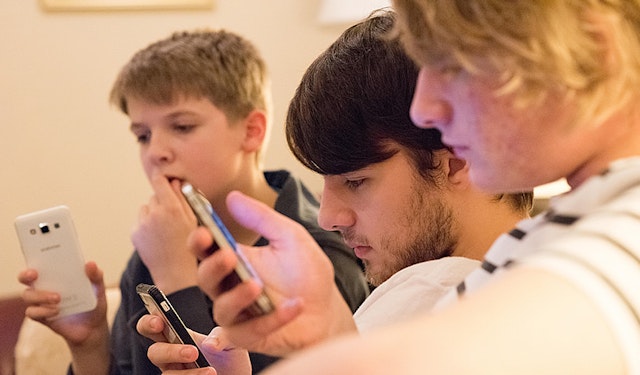Mark Zuckerberg’s personal philanthropy and his company, Meta, have collectively donated hundreds of millions of dollars to more than 100 U.S. colleges and universities across the country, giving the CEO powerful potential leverage to influence the institutions, according to new data compiled by the Tech Transparency Project (TTP) and The Real Facebook Oversight Board (RFOB).
The recipients of these donations range from research powerhouses like the University of California, Berkeley, and the Massachusetts Institute of Technology to smaller institutions like Des Moines Area Community College. In some cases, the gifts can support entire academic programs or make up a big chunk of an institution’s overall funding.
TTP and RFOB are making information about these donations available today in a searchable database, which you can find at the bottom of this report. Meta and the Chan Zuckerberg Initiative, the philanthropic organization founded by Zuckerberg and his wife Priscilla Chan, did not respond to a request for comment.
The issue of Zuckerberg’s philanthropic gifts and their potential influence on universities came into sharp relief this week when leading online disinformation expert Joan Donovan accused Harvard University of pushing her out of a job after receiving a $500 million donation from the Chan Zuckerberg Initiative.
Donovan, who filed a whistleblower complaint to the U.S. Education Department and the Massachusetts attorney general, said she was subjected to a mounting campaign of pressure and restrictions as her team worked on a project that was acutely embarrassing to Meta—an archive of internal Meta documents leaked by former Facebook employee Frances Haugen. Harvard said it could not find a faculty sponsor to oversee Donovan’s work and denied that she was fired.
The database compiled by TTP and RFOB includes grants to institutions, not to individual academics, over the last five years. (The full methodology is available here.) A preliminary review of the data revealed a number of insights:
— Meta’s donations are mostly related to its own products, such as its virtual reality headsets, while CZI grants to universities span a broad array of topics, including K-12 education, artificial intelligence, and biomedical research.
— The biggest grants identified in this research were all made by CZI and include:
- Between $800 million and $1 billion to a biomedical research consortium of UC, Berkeley, Stanford University, and UC San Francisco.
- $500 million to launch the Kempner Institute for Natural and Artificial Intelligence at Harvard.
- $50 million to the University of Hawai’i Institute of Marine Biology.
- $46 million to four medical schools at historically Black colleges and universities: Charles R. Drew University of Medicine and Science, Howard University College of Medicine, Meharry Medical College, and Morehouse School of Medicine. (Each institution received $11.5 million.)
— At some smaller schools, donations from CZI and Meta make up a significant portion of the institutions’ overall funding. For example, between 2018 and 2021, CZI committed over $60 million to the University of Hawai’i system, which is equivalent to roughly 13% of the university’s 2022 endowment.
— Zuckerberg’s largesse toward the University of Hawai’i coincided with controversy over his efforts to consolidate a vast estate in the state via lawsuits over parcels of land, which has sparked outcry from the Native Hawaiian community.
— In some cases, representatives of Meta appear to be deeply involved in academic programs that the company funds.
— For example, in 2019, Meta provided unspecified support to establish the BAIR Open Research Commons within the Berkeley Artificial Intelligence Research program, to facilitate AI research between students, faculty, and industry. The partnership is managed by a “Facebook AI scientific committee,” which greenlights student research proposals. A Facebook AI research director served in a leadership role in the Berkeley program at the time the partnership was announced.
— Similarly, two Meta employees hold advisory positions at the University of Washington’s Reality Lab, which was launched in 2018 with industry support including a $2 million contribution from Meta.
— Meta’s donations aren’t always in the form of cash grants. The company has also provided its Meta Quest headsets to universities across the country.
— In April 2022, Meta and virtual reality company Victory XR rolled out a “metaversities” program at ten colleges and universities. The two-year pilot program creates a digital replica of each participating school’s campus, allowing students to attend class using Meta’s virtual reality headsets. Meta has donated hundreds of Meta Quest headsets to participating schools. TTP identified 14 more schools that have joined the metaversities program since its initial launch.
— The metaversities program could generate a continuing source of revenue for Meta, since colleges and universities wanting to expand the program may have to pay for additional headsets out of pocket. One official at New Mexico State University called it an “expensive endeavor.” The Meta Quest headset has a consumer price of between $300 and $1,000, depending on the model.
— The growing footprint of CZI and Meta in higher education has led to growing questions from students and faculty concerned about corporate influence and data privacy.
— An op-ed published in Harvard’s student newspaper last year took issue with CZI’s $500 million contribution to establish the AI institute, saying the research is likely to “align with, if not directly contribute to, Meta’s corporate goals,” which the authors found problematic given the company’s history of “algorithmically-promoted misinformation” and legacy of the “destruction of American democracy.”
— One professor at the University of Massachusetts Boston, commenting on the metaversities program, said Facebook’s history of exploiting people’s data “should at least raise some questions.”




